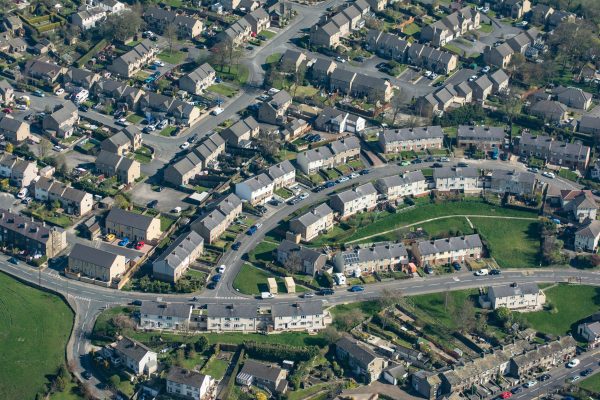Chelgate Local Newsletter – May 2021

This month we bring you the latest news on the local election results, the planning reforms announced in the Queen’s Speech, an update on virtual Council meetings, and more…
Local Elections Takeaways
By Kasia Banaś, Account Director
Conservative gains
Last week’s local elections were hailed as a big success for the Conservatives who took control of a dozen councils and gained more than 200 new Tory councillors. Local elections and by-elections are traditionally a trying period for a governing party and an opportunity for voters to show their frustrations with those in power. This was not the case this time. The voters rewarded the Government for a successful roll-out of the vaccination programme and gave it a significant boost.
councillors. Local elections and by-elections are traditionally a trying period for a governing party and an opportunity for voters to show their frustrations with those in power. This was not the case this time. The voters rewarded the Government for a successful roll-out of the vaccination programme and gave it a significant boost.
Some of the biggest wins for the Tories came in Midlands and the North of England where the Brexit realignment seen in the last two general elections continues. While lacking in detail, the Government’s ‘leveling up’ agenda was another draw for the electorate in the previously unwinnable for the Conservatives areas.
There are, however, some worrying signs for the Conservatives in the traditionally blue areas in the south where they lost seats or failed to gain any. While they only lost control of a few councils – Cambridgeshire, Oxfordshire, the Isle of Wight and Tunbridge Wells – it is a signal of a bigger trend in changing voting patterns.
The (very slow) rise of the Greens
Another success story of the elections is the strong performance of the Green Party. The Greens gained 88 seats in the English councils, came third in the London mayoral election, pushing the LibDems into 4th place. In the south west the joint biggest party in Bristol with gains against Labour across the city. Although their presence remains small, they managed to put themselves on the radar by taking votes from all parties. They are challenging Labour in big cities and taking votes from Conservatives in the home counties, where the Tories have been struggling for a while now. While the Greens have a long way to go to become serious contender in general elections, this is a growing trend worth watching.
What’s next for Labour?
It has been a disappointing week for Labour which started with the defeat in Hartlepool parliamentary by-election. The party also lost 300+ seats and control of eight councils. The few gains made in Cambridgeshire, Oxfordshire or West Sussex are telling of the changing appeal to the traditional Labour voter.
Labour remains strong in the cities and easily held on to their mayoralties of the Liverpool City Region, Greater Manchester, North Tyneside, and Salford. It faced strong challenges from Conservatives in Doncaster, from an independent candidate in Liverpool City and the Greens in Bristol, but all three were held on second preferences. These challenges do confirm however, the wider trends of growing Tory appeal in the north and impressive Green surge in the south.
Sadiq Khan’s victory in London, predicted as a landslide, was tighter than expected. He won on second preferences with a smaller share of the vote than received in 2016.
Keir Starmer vowed to do “whatever is necessary” to rebuild the trust of working people in Labour and started with a reshuffle of his shadow cabinet team and sacking his deputy Angela Rayner from her role as party chairman and national campaign co-ordinator. He also appointed a new director of strategy, Gordon Brown’s former chief pollster Deborah Mattinson who authored a book about the 2019 loss of the so called ’red wall’.
Queen’s Speech: Planning reforms
By Ruby Burdett, Consultant
The hotly anticipated planning reforms were announced in the Queen’s Speech today as one of the Government’s priorities. This re-commitment to comprehensive reforms of the planning system will be welcomed by the industry which has long asked for removal of the roadblocks that delay or prevent development and housing projects from coming to fruition. However, Boris Johnson can expect fierce opposition from MPs and local authorities who have little faith in the proposals.
 The Government says the new legislation will aid more people in getting onto the property ladder and will strengthen the position of those who rent. The levelling-up agenda is set to consolidate the electoral gains made by the Tories in the Midlands and the north of England in the general and local elections. In elections, Conservatives often lead among outright homeowners. It seems the Tory’s pledge to sort out the issue of home ownership in the north and the Midland’s, could be slightly tainted by extrinsic motivation.
The Government says the new legislation will aid more people in getting onto the property ladder and will strengthen the position of those who rent. The levelling-up agenda is set to consolidate the electoral gains made by the Tories in the Midlands and the north of England in the general and local elections. In elections, Conservatives often lead among outright homeowners. It seems the Tory’s pledge to sort out the issue of home ownership in the north and the Midland’s, could be slightly tainted by extrinsic motivation.
We can expect that under the new planning legislation, Councils will have to designate land as either protected or viable for housing development. This will make it difficult for the public to prevent new housing schemes in areas which have been deemed fit for housing. Theresa May spearheaded an onslaught of criticism in the Commons yesterday. She warned that removing the public’s right to object to specific developments will see the wrong houses being built in the wrong areas. In the initial consultation, these reforms were viewed as a reduction to democracy and enforcing top-down planning. The consultation brought in over 40,000 responses to these proposals, and it will be interesting to see how they have evolved since.
Plans to overhaul the traditional, document-based planning system with an innovative digital system are part of the proposed reforms. Modernising the system could see an increase in public engagement with planning applications, which is currently approximately as low as 3%.
While the reforms promise to deliver new homes, the proposals offer little to no reassurance of how and if the target for affordable housing will be met. London Council’s executive member for housing and planning, Darren Rodwell, warned the new system cannot hold developers accountable to build affordable housing.
While controversial, there is no doubt that radical changes to the planning system will need to take place to reach the Government’s ambitious goal to build 337,000 homes a year. But following last year’s opposition to the housing algorithm the Government can once again expect resistance.
For more information on planning reform please contact our Chelgate Local team.
Back to the draughty council chambers
By Michael Hardware, Director of Planning and Property
The Government has decided that legislation to hold council meetings virtually will not be extended. This means all future meetings will have to be exclusively physical in nature, held again in council chambers and committee rooms across the country.
The lockdown last year to counteract the march of the pandemic changed the way people work, with many being home-based, some permanently. Councils were no different with the Government quickly enacting legislation to allow council meetings to take place virtually. Although some councils were slow to implement those requirements and to master the technology, the general experience of this enforced change has been very positive. Meetings have been more controllable, less confrontational, they seem to stick to the agenda more readily with less small-talk and are more likely to finish on time! There were some notable exceptions, the parish of Handforth in Cheshire being one, but on the whole the systems worked well albeit with two new phrases coming into common use: “You are on mute” and “You are still on mute”.
Councils were no different with the Government quickly enacting legislation to allow council meetings to take place virtually. Although some councils were slow to implement those requirements and to master the technology, the general experience of this enforced change has been very positive. Meetings have been more controllable, less confrontational, they seem to stick to the agenda more readily with less small-talk and are more likely to finish on time! There were some notable exceptions, the parish of Handforth in Cheshire being one, but on the whole the systems worked well albeit with two new phrases coming into common use: “You are on mute” and “You are still on mute”.
Virtual meetings have also increased the participation of residents both in meetings and consultations, which is good for democracy. Watching and asking questions at council meetings was far easier from the comfort of residents’ armchairs.
The Coronavirus Act 2020, the emergency legislation introduced by the Government last year, authorised councils to hold virtual meetings during restrictions implemented to stem the spread of Covid-19. The Act made provisions for “persons to attend, speak at, vote in, or otherwise participate in, local authority meetings without all of the persons, or without any of the persons, being together in the same place”. This comes to an end on 6 May and the 1972 Local Government Act comes back in to play requiring councillors to be physically present.
A challenge to this was mounted in the courts in April by the Association of Democratic Services Officers (ADSO), Lawyers in Local Government (LLG) and Hertfordshire County Council. It sought the provision of ‘hybrid’ meetings with a combination of physical and virtual participation. The bid failed with the judges saying that this was a matter to be decided by Parliament, not the courts.
All is not lost as MHCLG has now started a call for evidence on the experience of virtual meetings. This runs until 17th June and can be viewed here. This will lead to a review of arrangements, although nothing will happen in the near future.
It is envisaged that some kind of hybrid arrangement will come into play over the coming year. It is likely, however, that statutory committees, such as planning and licensing, will be excluded and have to be physical, although there is no reason why the public cannot contribute remotely.
Mixed results across the south east
By Michael Hardware, Director of Planning and Property
The Conservatives had a good night generally in the south east last Thursday, although tempered somewhat by growing support for the LibDems, the Greens and for resident candidates, all perhaps an indication of future trends. Labour had an excellent night in London.
Labour did very well in London with both the re-election of Sadiq Khan, the Labour London Mayor, and Labour taking 11 of the 25 London Assembly seats.
 In Maidstone, Kent, the council moved from no overall control to a Conservative majority. The Conservatives lost control of Tunbridge Wells council for the first time since 1998. Kent County Council continues to be Conservative-led but with a smaller majority. The Labour group leader, Dara Farrell, lost his seat in Ashford but Labour also made gains in Canterbury North, Folkstone and Dartford. The LibDems gained Canterbury South and Sevenoaks Town. The independents won in Swale West and the Greens won in Swale East and Tonbridge.
In Maidstone, Kent, the council moved from no overall control to a Conservative majority. The Conservatives lost control of Tunbridge Wells council for the first time since 1998. Kent County Council continues to be Conservative-led but with a smaller majority. The Labour group leader, Dara Farrell, lost his seat in Ashford but Labour also made gains in Canterbury North, Folkstone and Dartford. The LibDems gained Canterbury South and Sevenoaks Town. The independents won in Swale West and the Greens won in Swale East and Tonbridge.
Hertfordshire saw few surprises with Broxbourne, East Hertfordshire, Hertsmere, North Hertfordshire, Stevenage and Welwyn Hatfield all seeing results dominated by Conservative wins. Whereas St Albans, Watford and Three Rivers saw bigger wins for the Liberal Democrats. The county elections saw the Conservatives maintain power despite losing five seats with the LibDems gaining four.
St Albans, which has been on a political knife-edge for some years, saw the LibDems take overall control of the council, having led with a minority administration for the last two years. The party made gains in the traditional Tory area of Harpenden with Labour’s support collapsing across the district.
Essex was certainly on the crest of a blue wave with Harlow and Basildon returning to Conservative control. Thurrock and Rochford remained under the Conservatives together with Castle Point but with a majority reduced from two to just one. Southend and Colchester stay under no overall control.
Basildon returned to Conservative control again: it has changed hands in each of the last four elections. The party gained four seats to overcome the previous Labour Independent alliance, with Cllr Gavin Callaghan stepping down as council and Labour leader dramatically during the count.
Harlow saw a 24 per cent swing to the Conservatives wiping out a seven-seat Labour majority winning 12 out of the 13 seats up for election on the evening. It is the first time the Conservatives have been in power in nine years, and only the second time in the town’s history, it had been led by Labour for 38 of the last 48 years.
Essex County Council saw the Conservatives maintain its control, but lost seats to residents groups in the north of the county. The non-aligned members together are now looking to become the official opposition as it has more seats than the LibDems and Labour.
Local Plan updates
Chelgate Local brings you Local Plan updates for Aylesbury Vale, Basildon, Brentwood, Central Beds, Chelmsford, Chiltern and South Bucks, Dacorum, East Herts, Epping, Epsom and Ewell, Harlow, Medway, Milton Keynes, Mole Valley and many more…
The impact of the Planning White Paper and planning reforms could have a major impact on future Local Plans – keep up to date with our monthly summary!
Consultation goes contactless!
The Government has enabled councils to continue business virtually and Chelgate Local is ready for planning to progress. For details of our new consultation package visit our website and go contactless today!
Contact Us
If you would like to know more information about planning reforms or any of the above content please contact Chelgate Local or speak to Michael Hardware or Liam Herbert
